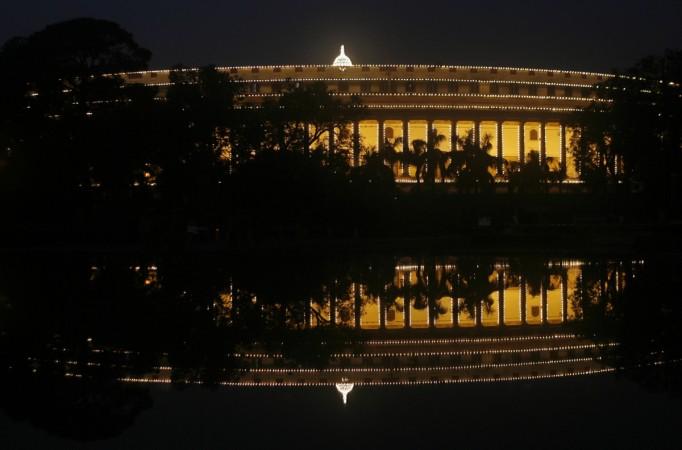
The Goods and Services Tax (GST) Bill will be taken up by the Rajya Sabha on Wednesday. Union Finance Minister Arun Jaitley will move four amendments to the Constitution (One Hundred and Twenty-Second Amendment) Bill, 2014.
The chances of the bill being passed increased after the Congress indicated support.
Parliamentary Affairs Minister Anant Kumar told the media that he was hopeful the bill would be passed through consensus. "The GST bill is listed for Wednesday. We hope it will be passed through consensus," Kumar was quoted as saying by IANS.
The government is keen to bring out four key amendments on goods and services tax in the upcoming bill.
The four amendments are:
- Doing away with the controversial one percent entry tax.
- Guarantee the states full compensation over a five year period for any revenue losses arising due to shifting to the new taxation system.
- Setting up a new mechanism for dispute resolution.
- Give fresh assurance that the GST will neither lead to revenues losses for the states nor hurt the consumer.
The GST bill was passed by the Lok Sabha in May 2015 but it was stuck in the Rajya Sabha owing to stiff opposition from the Congress, which has a majority in the upper house. Any constitutional amendment needs support of two-third majority of the members voting for it to be considered as passed.
Last week, the Congress indicated support after Anand Sharma, the deputy leader of Opposition in the Rajya Sabha, held talks with the government.
BJP, Congress order full attendance
The BJP and the Congress on Monday issued orders to all its members of parliament to be present in Rajya Sabha for the next three days.
Congress party members from both the houses will be briefed on Wednesday by senior leader P Chidambaram and Anand Sharma about the discussions with the government and the amendments being made to the bill, NDTV reported.
What is the significance of GST?
The Goods and Services Tax is an indirect tax to be levied when a consumer buys goods or services. The GST Bill will replace all indirect taxes that consumers currently pay in India. Apart from the central excise duty or service tax, various indirect taxes are levied at multiple points on every product or service, such as the VAT/sales tax and luxury tax, which will be done away with.
A combined mechanism under a single GST tax rate will then come into force.








